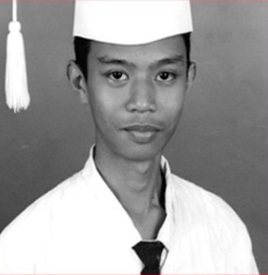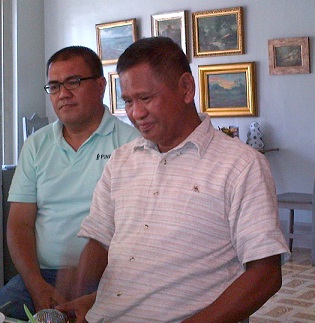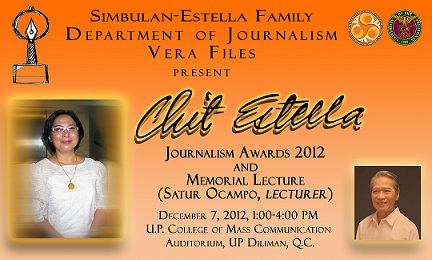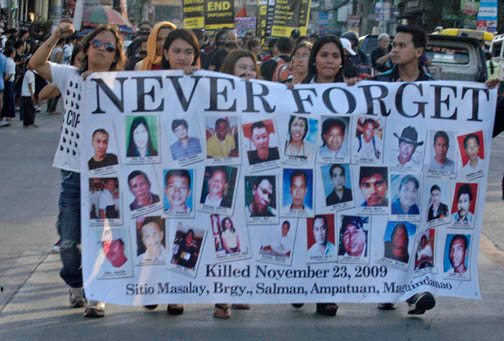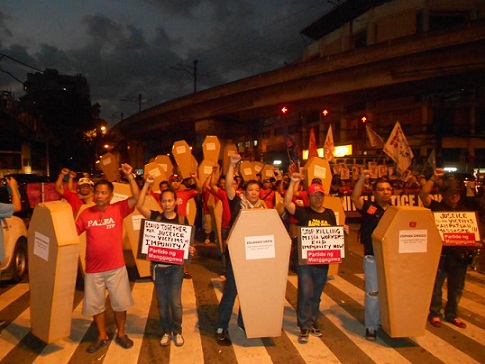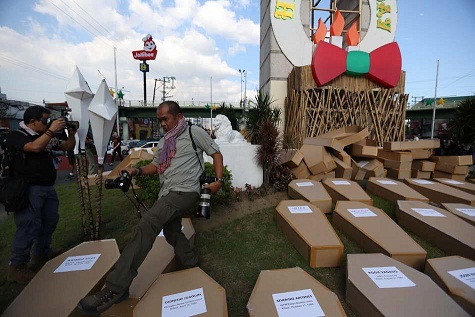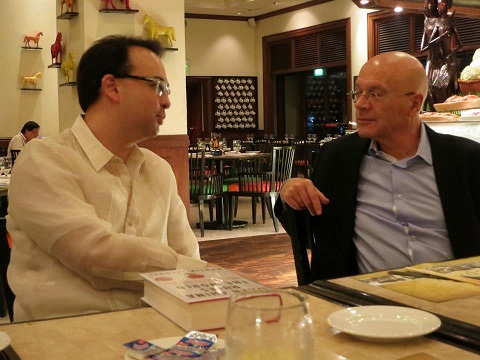
Martin Jacques and Sen. Alan Cayetano, one of the sponsors of the forum.
While President Aquino was making waves in the summit of Asean leaders and their dialogue partners in Cambodia with his statement urging the United States to speak up on the South China Sea conflict which was anathema to China, visiting journalist and China expert, Martin Jacques, was telling a rapt audience at the Manila Intercon, “I don’t think it would serve the Philippine well to think that the United States will help” in the territorial conflict with China.
“I am not arguing that the Philippines give up its claims, but a way has to be found to deal with these questions, a way that does not involve derailing or poisoining its relationship with China because it will not get anywhere,” he said.
Jacques is the author of the 2009 bestseller, When China Rules the World, which asserts that “by 2027 China will overtake the United States as the world’s largest economy, and by 2050 its economy will be twice as large as that of the United States.”
In the book, Jacques, a columnist in the British publication, The Guardian, is a visiting senior research fellow at the London School of Economics, IDEAS, a centre for the study of international affairs, diplomacy and grand strategy. He is also a visiting professor at Tsinghua University, Beijing, and a fellow of the Transatlantic Academy, Washington DC.
Jacques said leaning on the U.S. in the conflict will not get the Philippines anywhere. “It will just put you in a sticky situation.”
Jacques said China has not “handled itself well” in the South China Sea which the Philippines refers to as West Philippine Sea.
He attributes the Chinese lack of “one voice” to the various agencies involved namely: the fisheries protection, coastal, state-owned oil corporation, the local government, and the Chinese Navy.
“The Chinese have not gotten its act together. But here’s one thing I will say, the Chinese will not go to war over these islands,” he said. South China Sea is being claimed wholly by China with its 9-dash line map while parts of the area also being claimed by the Philippines, Vietnam, Malaysia , Brunei and Taiwan.
But Jacques said it’s a different matter with Senkaku (Diaoyu to the Chinese) islands which China is disputing with Japan because of “failure of Japan to apologize” for atrocities done during the World War II.
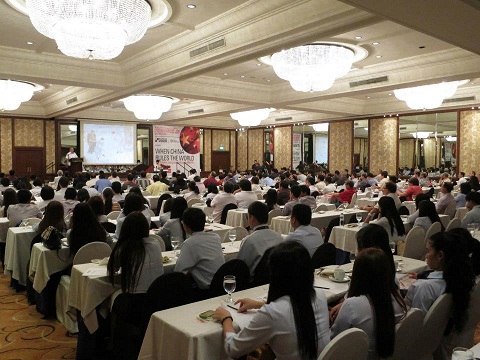
A rapt audience
He advised the Philippines “to develop a strategic relations with China” despite the conflicting territorial claims citing Malaysia which maintains a “warm relationship” with China despite conflicting territorial claims in South China Sea.
“Don’t lose the perspective, the big picture…Smart governments think strategically, they have a sense of the future and have a sense of what to do, know its priorities,” he said.
In his book, he addressed the concern how to deal with the rising global power: “For perhaps the next half-century, it seems unlikely that China will be particularly aggressive. History will continue to weigh very heavily on how it handles its growing power, counselling caution and restraint. On the other hand, as China becomes more self-confident, a millennia-old sense of superiority will be increasingly evident in Chinese attitudes. But rather than being imperialistic in the traditional Western sense – through this will, over time, become a growing feature as it acquires the interests and instincts of a superpower – China will be characterized by a strongly hierarchical view of the world, embodying the belief that it represents a higher form of civilization than any other…
“The size of population and the longevity of its civilization mean that China will always have a different attitude towards it place in the world from Europe or the United States. China has always constituted itself as, and believed itself to be, universal. That is the meaning of the Middle Kingdom mentality. In an important sense, China does not aspire to run the world because it already believes itself to be the centre of the world, this being its neutral role and position. And this attitude is likely to strengthen as China becomes a major global power.
“As a consequence, it may prove to be rather less overly aggressive that the West has been, but that does not mean that it will be less assertive or less determined to impose its will and leave its imprint. It might do this in a different way, however, though its deeply held belief in its own inherent superiority and the hierarchy of relations that necessarily and naturally flow from this.”
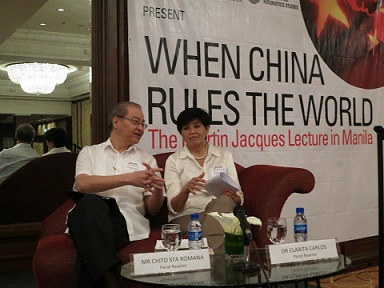
Reactors Chito Sta Romana and Clarita Carlos
No stranger to Southeast Asia, having been married to a Malaysian-Indian lawyer and lived in Hongkong, this was Jacques’ first visit to the Philippines. (Jacques’ wife, Hari Veriah, died in 2000 in a Hongkong hospital due to negligence and racism, he said. )
JB Baylon, one of the founders of Pilipinas 2020 that sponsored the forum on “When China Rules the World”, related Jacques’ Philippine connection.
In 1999, Marin and Hari, while living in Hongkong hired a Filipina nanny named Christine to help raise their newborn son Ravi.
JB said, “ Hari apparently liked Christine that she promised the nanny that this would be her last job since the Jacques family would take care of her and send her to school.”
“Unfortunately in 2000 Hari died in HK. Martin asked Christine whether she was still interested to be nanny to Ravi and she was.
“A year or so later still devastated by his loss, Martin decided to return to London with Ravi. He asked Christine if she would be interested to continue working as a nanny in London, and she agreed. So Martin worked on the proper papers.
“In London, Martin reminded Christine of his wife’s promise to her and said he would do what he could to fulfill it. She showed interest in going to school and eventually went to nursing school.
“Today, 14 years later, Christine is now a nurse. But she remains part of the Jacques household as nanny to the now 14-year old Ravi!”
